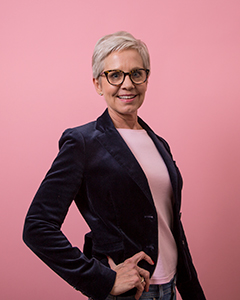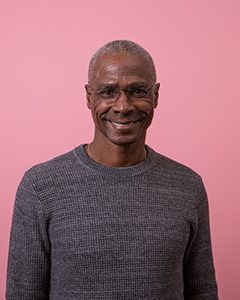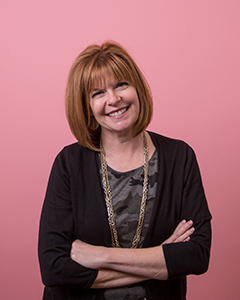Give a creative five minutes to brainstorm, and they’ll give you a handful of ideas. Give them five minutes to bitch, and they’ll fill a building.
Don’t believe me? Buy a comfortable chair and put it in your office. I made that mistake. More people started coming by, sure. But not to work. They came to bitch. And they stayed longer, too, since they now had a nice, cushy seat.
Bitchfests are how creatives bond. We bitch about the client, account service, the assignment, the budget, the hours, our salaries, other creatives, the color of paint on the agency walls. While all this bitching may feel cathartic, it’s also destructive. It builds walls between departments and reinforces stereotypes. (It’s also a huge time suck.)
Up until a few weeks ago, I thought bitching was just part of an average day on the job. Write some ads. Get some coffee. Bitch a little. Write some more ads. Get stuck. Bitch some more.
Perhaps I might have continued down this path had my agency not recently given me the opportunity to attend the VCU Brandcenter Leadership Conference. In the next five days in Richmond, I’d learn how to be a better leader but more importantly, how to be an “agent of change,” as Rick Boyko, Brandcenter’s director put it.
The credo of an agent of change: Bitching doesn’t change diddly squat.
“The client just doesn’t get it.”
This may be the most common bitch in advertising. Say it all you want but it won’t help you sell your idea.
What I learned during the seminar is that maybe the client isn’t the problem. Maybe I didn’t do a good enough job explaining my idea, selling my idea. Maybe I was thinking like a creative instead of a brand manager. As creatives, we think like our target audience when we’re creating work, right? Well, we need to think like our clients when selling it. Don Just © Marc Stephens
Don Just © Marc Stephens
Fast-forward to the last day of the conference. Don Just, Brandcenter professor and former CEO of The Martin Agency, is discussing the differences between how clients and creatives think.
He tells us clients want business solutions. But the agency is bringing marketing executions. Clients think about profit. We think about revenue. While clients analyze, process, and compute, agency people imagine, believe, and hope. So to succeed, it’s our job to become mini-experts in every audience we pitch to. And that includes the audience of Clients.
Do you know what keeps your clients up at night? Do you know the ins and outs of their business? Do you know what makes their competitors tick? Starting today, I’m putting things like client financial statements on my list of required reading. I need to understand where they live.
“I’ve got my client hat on, but I’m not selling squat.”
 Peter Coughter © Marc Stephens
Peter Coughter © Marc Stephens
Peter Coughter, Brandcenter’s presentation guru, said it best: “You’ve got to do ads for your ads.”
Don’t just slide your work across the table and say, “Ta-Da!” To sell your great idea, you’ve got to be exactly as persuasive, compelling and entertaining as the work itself. Make the presentation interesting. Make the presentation break-through, memorable and compelling.
But even the best dog and pony show won’t work if you don’t make your client believe in what you’re selling. Now’s the time to address those problems that keep your client up at night. Make them believe that your idea is the only possible answer to their business problem. And serve that answer up in terms they can understand. [Insert things you learned from their financial statement here.]
“Did all that, and my client still sucks.”
One of our most interesting speakers was a client—Ryan Anderson, director of Global Brand Management at Westin Hotels. When diplomatically asked why lots of clients seem to suck, Ryan politely reminded us that we have to own the relationship with our clients. He said it’s our responsibility to teach them how to give good feedback. There is no advertising school for them. If we don’t show them how to be model clients, then we shouldn’t expect it.
Touché, Ryan.
So stop bitching, and start reading, teaching, and persuading. Yes, that’s a lot to do to sell an idea, but the alternative is the trashcan.
“Account service isn’t selling my work.”
There’s your first problem: “My work.” Maybe they’d be more successful if it was “our work” they were selling.
Alex Bogusky said, “Collaboration is the new competition.” We’re not on Madison Avenue anymore; it’s Madison Circle. Rob Rasmussen, CCO of Tribal DDB, stresses the importance of giving everyone a seat at the table—creatives, account service, planning, design, developers, and information architects. When we arrive at a creative solution together, everyone feels vested.
It doesn’t matter if account service sits on the other side of the building. It doesn’t matter if your agency isn’t a very collaborative place. There’s no force field keeping the groups apart. If you want to sell work, change the dynamic of the projects you work on. Invite account service to a concepting session. Invite media. Invite a developer.
The Martin Agency is taking collaboration a step further. John Adams, chairman and CEO, spoke to this on the second night, and said, “Good ideas can come from anywhere, even the accounting department.” John Adams © Marc Stephens
John Adams © Marc Stephens
In fact, at Martin, they require every employee in the building to go through a creative training course. Left-brain thinkers learn to solve problems using the right side of their brains. Mr. Adams said the results were immediate. Problems that had plagued departments for months were solved in minutes.
Does this mean the guy who vacuums the carpets at Martin is going to write the next GEICO commercial? Maybe. Maybe not. But their approach does in fact give their entire organization a sense of possibility and turns their whole building into a creative department.
“Our stupid budget can’t pay for that.”
Okay, even if you’ve helped train your client and maybe changed your title to Creative Collaborator, there’s still something left to bitch about—the budget.
If your idea is great—the kind of idea that your client, your agency, and your career can benefit from—don’t let a lack of funds get in the way. It’s time to put your own skin in the game or to find an outside partner.
Every agency has a slush fund. Somewhere, there’s some dough tucked away for a rainy day. Rick Boyko said it existed at Ogilvy. John Adams confirmed its existence at The Martin Agency. And Tribal DDB’s Ron Rasmussen said it not only exists, he admitted to using it on occasion.
If you have a great idea then you need to make it rain. And you can’t make it rain by bitching in your cube. You’ve got to get out there and make a case for your idea, with numbers, not just words. Maybe your agency will cover some of the production expense. Maybe with the agency behind you, the client will find some money to match the contribution.

WeChoosetheMoon.org
Two of our speakers, Joe Alexander and Brian Williams of The Martin Agency, brought all of this to life for us. The JFK Library had asked them for print ads to commemorate the 40th anniversary of the Apollo 11 mission. But Brian and his partner, Wade Alger, had bigger plans—an interactive experience that recreated the journey to the moon in real-time. They called the idea WeChooseTheMoon.org, and they believed that its impact would be much greater than a handful of print ads. Unfortunately, the small budget they’d been given said otherwise.
To bring their idea to life, they brought in an outside partner—Domani Studios in NYC. Not only did Domani produce the site, they became co-creators of the idea. To do this, the Martin Agency had to relinquish complete creative ownership. But look what they got for their collaborative spirit. A Gold Cyber Lion and a slew of other awards.
What I learned is not to be so precious with my ideas. If you’re willing to give an outside partner an equal stake, your production costs will drop. That’s a much better alternative to the trashcan.
“I’m done bitching.”
After a week at the seminar, I learned more than just leadership, presentation and client management skills. I realized something much bigger—I wasn’t just a creative. Sure, that’s what I’d gone to school to learn, but the reality is, that isn’t enough. We creatives have to be teachers, salespeople, collaborators, negotiators, and rainmakers. The sooner we realize this and assume some real responsibility for our ideas, the sooner we’ll sell better work, win more awards, and get paid more (which would eliminate, in the process, two other things we bitch about).
At the end of the day, it’s clear to me that people who accomplish great things don’t sit around bitching. So if you plan on stopping by my office to sit in my cushy new chair, don’t expect me to sympathize with your horrible client, your worthless account team, or your non-existent budget. If you have time to bitch about those things, you have time to fix them.




